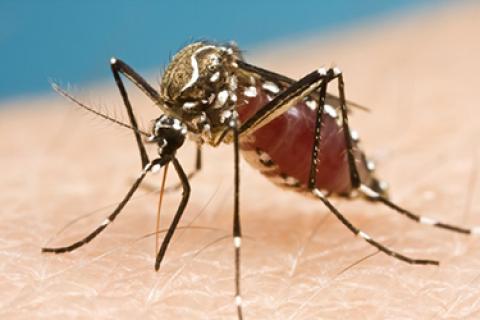Looking at Zika from a gender perspective

The Zika virus has been recently identified in Europe after having spread in Brazil, where its first infection was confirmed in March 2015. Despite being relatively mild, this virus is now making headlines, as it could be responsible of a large increase of microcephaly among infants. A connection that pushed Brazil to declare Zika a public health emergency. Moreover, this situation clearly represents a serious gender-related issue. As we already stressed out, gender and sex have an impact on experiences and behaviours relating to infectious disease outbreaks, and this is particularly true in a case like that of Zika, since its infection may lead to dramatic outcomes when occurring in women. It is thus extremely important to view such a threat from a sex and gender perspective.
The Zika virus is an arbovirus named after the forest in Uganda where it was first identified in 1947. It is spread by mosquito bites, and the most common symptoms are fever, headaches, rash, myalgia, and conjunctivitis. The illness tends to be mild, and the clinical manifestations are similar to dengue and chikungunya infections. There is no vaccine to prevent the Zika virus, which exists in Africa, Asia, the Americas and now has reached Europe too. From 2010 to 2015, the country saw roughly 130 to 170 cases of microcephaly each year, however this figure doubled in the first nine months of 2015 and in the period October-December 2015, when over 2400 additional cases have been reported. The dramatic rise of the cases of microcephaly in Brazil points the finger to the Zika virus involvement, however more studies are necessary to prove this conclusively. While maternal-foetal transmission of the Zika virus has been documented, it is not known how many of the microcephaly cases in Brazil are associated with it. However, this does not mean that caution should not be exercised. Until more is known, special precautions are being recommended to pregnant women to avoid infection.
The most effective way to prevent Zika virus infection is to avoid getting bitten by mosquitoes. The Aedes aegypti, the mosquito that spreads Zika virus, is endemic in Latin America and is adapted for indoor and daytime biting in urban areas. They breed in still water such as small puddles, open water containers, and pots and plants with water logged in them. Pregnant women can be infected with the Zika virus throughout the pregnancy, however the incidence of infection in pregnant women is not known and data is limited. Also, no data exists that suggests pregnant women are more susceptible to Zika virus infection, or experience the disease more severely during pregnancy. The U.S. Centre for Disease Control (CDC) has recommended that pregnant women postpone travel to areas where Zika virus transmission is ongoing: Brazil, Colombia, El Salvador, French Guiana, Guatemala, Haiti, Honduras, Martinique, Mexico, Panama, Paraguay, Puerto Rico, Suriname, and Venezuela. This is to avoid the risk of microcephaly that a Zika virus may pose to the foetus. Healthcare providers are advised to ask all pregnant women about recent travel and pregnant women who have travelled to the affected areas and who report two or more symptoms should be rested for the Zika virus infection. As there is no vaccine or specific antiviral treatment for the Zika virus, treatment is mainly supportive and includes rest, fluids, and use of analgesics and antipyretics. The Zika virus does not pose a risk for future pregnancies, as the virus tends to remain in the blood of an infected person only for up to a week.
In summary, the risks posed by the Zika virus for pregnant women are unknown as the link between it and microcephaly has yet to be scientifically verified, however extreme caution should be exercised. If you are pregnant and plan to travel to the affected areas, consider postponing your travel – and if you are living in the affected areas, take every possible precaution to not get bitten by a mosquito, such as destroying places where mosquitoes may lay eggs, using covering clothing, mosquito repellent, and using a mosquito net in your house and over your bed. “Don’t get pregnant now: that’s the most rational advice I can give”. This is the dramatic advice given by a director in the Brazilian Ministry of Health, which may sound a bit excessive. However, four countries - El Salvador, Jamaica, Colombia and Ecuador – issued a similar recommendation, inviting women to postpone pregnancy until 2018, if possible. Other than excessive, such an endorsement is also not pertinent if you already are pregnant. However, in light of the microcephaly incidents and the increase of the Zika virus, pregnant women should take all precautions they can until more is known about the virus and its effects.
